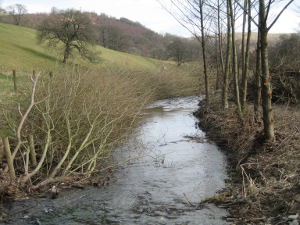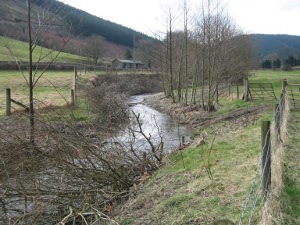Climate Change
Climate change is a long-term change in the statistical distribution of weather patterns over periods of time that range from decades to millions of years. It may be a change in the average weather conditions or a change in the distribution of weather events with respect to an average, for example, greater or fewer extreme weather events. Climate change may be limited to a specific region, or may occur across the whole earth. However, the planet's surface has warmed by about 0.75° C on average since the start of the 20th century and by about 0.4° C since the '70s.


Returning streams to their more natural, narrower width is one of the measures by which WUF can help rivers cope more effectively with climate change. The above two photos show the Clywedog, an upper Wye tributary, after WUF habitat work. The revetments not only protect against erosion but also provide low cover shade in the summer. The trees on the right bank have been thinned rather than coppiced, again to provide ‘hot day’ shade.
In the context of river management, changes that bring about extremes of drought, rainfall, and temperature present yet more challenges to the ecological stability of Usk, Wye or in fact any river. In addition to the overall need for everyone to ensure extreme care is taken in using resources such as fossil fuels, water etc, WUF makes sure that our habitat restoration has climate change features. Ideally, restored streams should feature:
-
Return to narrower widths - less evaporation.
-
Growth of low cover in summer (shade) with die back in winter (passage of water in high flows).
-
Shade where appropriate.
-
Trees to be sited to give "hot day" shade.
-
Advice against excessive grazing in catchment.
